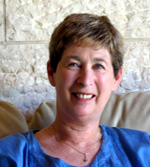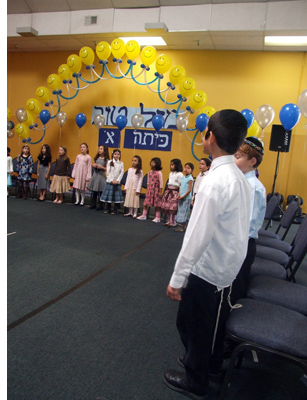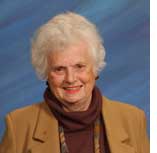| |
|
 JERUSALEM—Some of my columns find their way to the blog section of Jerusalem Post on line, and some of those elicit reader comments. JERUSALEM—Some of my columns find their way to the blog section of Jerusalem Post on line, and some of those elicit reader comments.
A number of them say more about Israel than what I have written. I am talking about the extremes, which are a disproportionate number of the comments that appear in the Post, and some of those that come to me directly.
On the one side are those that insist that Israel is an offense against history. It should never have come into being, and the world would be pure again if it disappeared into what should be the Middle East. The Zionists are the last expression of colonialism. The Jews stole the land with their conniving, money, and weapons. We continue to violate international law, and bring the Dark Ages to the Arabs of Israel and Palestine.
On the other side are writers who say that I fail to recognize danger. Arabs and Iranians are assembling ever more powerful weapons, always closer to our borders. Views like mine reinforce the actions of the Israeli government that have brought misery, and are bound to produce greater disaster. If Israel is to counter the clear signs of doom, it must react forcefully to every attack and threat, and give up on the fantasy of living at peace alongside Arabs.
I am not aware of any other western democracy that is viewed by so many as illegitimate, or in danger of succumbing to those who threaten its existence.
Meanwhile, a majority of Israelis, along with most leading politicians, the IDF and other security organizations operate between those extremes. We muddle through conflict pressures from Arab violence, condemnation from extremists who demand surrender or military onslaught, and constant pressures of foreign governments that often are supportive but urge only moderate efforts to defend ourselves.
Muddling through is a classic political response to intense pressures. It assures a continuation of severe criticism insofar as it does not surrender either to enemies, or to the insistence of those who claim that moderation is dangerous.
Muddling through is less risky than its alternatives. The vast majority of Israelis are living better than if they gave up and sought entry to their previous countries (or those of their parents and grandparents) in Eastern Europe, North Africa, Iraq, or elsewhere in the Middle East. The smaller number of Americans and Western Europeans among us could go back, but most likely without the health benefits, jobs, pensions, and other goodies that we enjoy here.
A surrender to Arab demands might please observers who feel that the Jews have corrupted history since 1948, but could also produce a slaughter that would recall the reason why the Jews worked so hard to create Israel.
Muddling through is also more attractive than the aggression favored by critics who view us as timid and foolish. It avoids a concerted attack by the armies of Arab countries that have accustomed themselves to Israel's existence. It keeps Israel on the right side of western democracies that might deny access to their economies and technology if they viewed Israel as crossing the line between reasonable efforts at self-defense, and barbarism.
Those who view Israel as timid might take another look at Gaza and the West Bank.
The results of muddling through for most of its existence are not all that bad. Arab violence remains a problem, as demonstrated by the death of a 73 year old woman this week in Dimona, and the rain of rockets on Sderot and other communities near Gaza that come predictably in response to Israeli attacks. The casualties and anxieties are intolerable, but arguably less than would be produced by a military onslaught likely to accomplish nothing more than a temporary lull in the attacks.
We are, after all, stuck with unpleasant neighbors. Cleaning them out of the neighborhood is beyond our power and would violate the norms that motivate many of us. Urging them to become good neighbors is an attractive option, but is beyond a reasonable level of optimism.
We enjoy a European standard of living along with our anxieties. The neighbors who are working so hard for our destruction are not doing as well. We hope for better, and one of these generations may get there. Until then, a prime goal of muddling through is not to make things worse.
A HERALD IN ZION
Israeli school ceremony celebrates pupils demonstrating their reading of Bible
By Dorothea Shefer-Vanson
 MEVASSERET ZION, Israel—When I contemplate my time at the Jewish primary school I attended in north-west London some fifty years ago there are few incidents of note that remain in my memory. Dull lessons, stultifying routine and hackneyed custom are all that swim into my ken. I do not recollect a single outing to any of the myriad sites of interest or cultural enrichment in which London abounds. I hope that things have improved by today. MEVASSERET ZION, Israel—When I contemplate my time at the Jewish primary school I attended in north-west London some fifty years ago there are few incidents of note that remain in my memory. Dull lessons, stultifying routine and hackneyed custom are all that swim into my ken. I do not recollect a single outing to any of the myriad sites of interest or cultural enrichment in which London abounds. I hope that things have improved by today.
I very much fear that in Israel this is also largely the case. In my own small
way I have attempted to remedy the situation as far as my own children and grandchildren are concerned, but this is of course on a very minor level.
Last week, however, I was made aware of a welcome interruption to my smaller grand-daughter’s mundane school routine when I was invited to attend the ceremony marking her and her class-mates’ graduation to the elevated status of being able to read the Bible. They are now in the second form and are considered sufficiently proficient in reading and writing. The school does not belong to the religious education stream so that while the pupils are taught about their cultural, historical and spiritual heritage, they are not subjected to sermonizing and no belief system is inculcated.
The event was held in a local synagogue. It began in the synagogue itself, with the children sitting in the centre and the parents and guests sitting at the back and along the sides. The rabbi, a bearded young man in modern clothing who spoke in a relaxed, everyday manner, quizzed the children on their knowledge of some basic religious concepts. These involved such terms as kiddush, the Temple, the centrality of Jerusalem, the Torah, and the patriarchs (but not the matriarchs). He was somewhat taken aback when a little boy answered ‘Abraham’ when asked who had destroyed the first Temple. At the end of this part of the evening the rabbi took the children to the Ark of the Law and showed them the scrolls inside, even opening one up for their inspection. I was later informed that one little boy, who had insisted on coming despite not being well, vomited on the carpet and had to be taken home. Fortunately, the rabbi had left by then.
Then everyone proceeded to the hall downstairs, where the parents sat on chairs in a circle and the children performed dances and sang songs that were connected with the subject. Most of the songs were modern Israeli songs with only a very vague association with anything biblical, and the dances even less so. But it was an opportunity for the teacher and her wards to show their prowess in both those fields.
The children were very sweet and well-behaved. The teacher and her helpers were proud of their performance, and of course the parents and relatives also enjoyed the event, in the preparation of which considerable effort had evidently been invested.
The festivity ended with each child being called by name to receive the treasured book, after which they all read out its first sentence in unison. It was a very touching moment and reminded those present that nowhere else in the world today is it possible to find six- and seven-year-olds reading and understanding a text that is over two thousand years old.
Since no event in Israel is complete without food, the evening ended with pupils, teachers, parents and guests all falling eagerly on the tables laden with sandwiches, cakes and other goodies that had been prepared by eager volunteers.
First graders receive siddurim in special presentation at Hebrew Day School
By Donald H. Harrison
 SAN DIEGO—On the way to the presentation of siddurim (prayer books) to first graders at Soille San Diego Hebrew Day School, I was worried about two things. SAN DIEGO—On the way to the presentation of siddurim (prayer books) to first graders at Soille San Diego Hebrew Day School, I was worried about two things.
First, having read Dorothea Shefer-Vanson's story from Mevasseret Zion, a story that appears elsewhere in this edition, I fervently hoped that none of the children would become so excited by the occasion that he or she would get physically sick from the joy of it.
In that regard, I was particularly concerned about my grandson, Shor, because it had been clear for several days that he considered the upcoming presentation a highlight of his six years on earth. Like many boys, Shor doesn't always worry about how his clothes appear, but in the days leading up to the ceremony he carefully tried on and compared at least two outfits, just to make certain he would look just so.
The second thing I knew to worry about was that Mashiach (the Messiah) shouldn't come too early!
Somehow, Shor got the idea that the day Mashiach finally arrives will be when everyone is speaking Hebrew. Many of the children at Soille come from homes where Hebrew is not spoken, and Shor was concerned lest the Messiah arrive at a time that he and the other first graders were giving speeches in English for the benefit of their families.
If the Messiah should come just then, wouldn't everyone in the first grade have to speak Hebrew, and then how would the parents and grandparents in the audience understand what was going on? Shor is such a nice, considerate boy!
Told of Shor's fears, his religious subjects teacher, Stephanie Buchwald, laughed heartily and made a note to herself to be sure to explain to the children that God--or Hashem as he is known around the school--understands every language, and so, we may assume, does the Messiah.
 Still, I was relieved that both my hopes were realized. No one got sick during the performance, and, as best as I could tell, Mashiach (though we hope for his arrival) tarried long enough to permit completion of the program that included songs in Hebrew, recitations in English, and presentations of siddurim to the 31 students in the combined first-grade class . "Morah Stephanie" and Elaine Lepow, a former principal of the school, presented each student with a prayer book. Still, I was relieved that both my hopes were realized. No one got sick during the performance, and, as best as I could tell, Mashiach (though we hope for his arrival) tarried long enough to permit completion of the program that included songs in Hebrew, recitations in English, and presentations of siddurim to the 31 students in the combined first-grade class . "Morah Stephanie" and Elaine Lepow, a former principal of the school, presented each student with a prayer book.
Prior to that climactic moment, students were seated in a large semi-circle backed by an arch of smiley balloons, created by Shor's mother, Sandi (my daughter!), owner of Balloon Utopia. The students were accompanied on guitar by Zeji Ozeri, star of the documentary, The Land of Milk and Honey, which coincidentally is advertised in this issue. You could say that my wife Nancy and I in our element!
The pupils sang such Hebrew songs as "Revach," "Shabehi Yerushalayim," "Venichiyeh," "Mode Ani," "Ma Tovu," "Adon Olam,' "Yigdal, "Modeh Ani La Hashem" "Rak Yeladim," "Elokim Sheli" and, for their finale, the "Mashiach song," prompting me to look around a bit apprehensively.
With so many students in the production, speaking parts were broken into a sentence or short paragraph per student. Some of the lines were rushed, some were giggled, and some were delivered with such seriousness and devotion that we in the audience understood what Morah Stephanie meant when she suggested that sometimes the prayers of children can reach farther than those of adults.
"During these past months we have been working really hard in learning how to read and pray from a Siddur. We have learned parts of the morning prayers, but most importantly we have learned to pray with kavanah," recited the children. "Each one of us holds a great responsibility because we are a link between the past and the future. A special link that joins together the chain of the Jewish people from generation to generation. If even one link would break apart the chain would be ruptured forever...."
They went on to explain why a Siddur is necessary. "For many, many years Jewish people have recited Tefilot (prayers) but not everyone said the same ones or in the same order. Some tefilot like Shema come straight from the Torah. Others, like the Shemone Esre were set down by a group of great Sages and Prophets called the Anshei Knesset Ha' Gedolah, during the time before the Second Beit Hamikdash. About 1,150 years ago Rav. Amram Gaon put together the first Siddur, so that everyone would have an organized from of prayer. Here he listed all the prayers in a proper order. that's why why the word Siddur comes from the Hebrew word seder which means order. ..."
It was, suggested Rabbi Simcha Weiser, headmaster of the school, a holy occasion.
May all of our children and grandchildren be thrilled by lifelong learning, and may they approach their studies with as much inspiration and dedication as the First Graders felt on this occasion!

 . .
DOING IT BETTER
Reading, writing, counting and speaking —are we as competent as we should be?
By Natasha Josefowitz, Ph.D.
 LA JOLLA, California—Reading, writing, counting, speaking! Even though these are commonly practiced, they are seldom all practiced well. You may be good at one or two of them, but seldom is one accomplished at all four. Yet an effective professional ought to be competent in them all. LA JOLLA, California—Reading, writing, counting, speaking! Even though these are commonly practiced, they are seldom all practiced well. You may be good at one or two of them, but seldom is one accomplished at all four. Yet an effective professional ought to be competent in them all.
If you have a responsible position in your organization, you should be able to look at computer printouts of numbers, charts and statistics and not go blank. If you cannot speed read, you should at least know how to skim over material. Reading information is a primary way to keep up-to-date.
The world of knowledge today has both shrunk and expanded. Anything that happens in one corner of it in some way influences the rest.
Whether it is recent Supreme Court Rulings, the stock market, the platforms of local, state or national politicians or demographic changes, these will effect decision making at the highest levels of organizations.. If you add your own particular interests, such as theater, sports or fiction, you could end up spending all your time keeping abreast. So you need to read fast, scanning in order to see if there is valid information or skimming to pick up key concepts. Since you cannot know everything, priority and choice become important: what do you “need” to know to function effectively in your work environment and what do you “wish” to know to be generally well-informed person?
Writing is changing. We used to write longhand and language was often quite flowery with many adjectives. Then we used typewriters and language became more precise, more business-like. Now we have computers and shortcuts have invaded our missives. The language has become terse. When I have gotten an e-mail with a question I have often answered with “Reply: yes.” One word was all that was necessary. No dear anyone, how are you, signed sincerely yours.
I still have my children’s early letters with small drawings, my grandchildren’s line papers adorned with hearts for Valentine’s Day. All this has fallen by the wayside and been replaced with efficiency. I miss it.
Speaking, whether at a meeting or in a larger public forum, requires three components: content, sequence and style.
Start with the content: why you are talking—it is to answer a question, to inform, to defend, or to add information. The sequence means that you must decide whether you start with your major point or need to build up to and end with it. Style is whether you are chatty, using personal examples, or more academic, with facts and figures. Of course you can do both. It’s important to get people’s attention with your first sentence and equally important to end with a conclusion which sums up why you talked in the first place.
George Burns said the secret “…is to have a good beginning and a good ending, then having the two as close together as possible.”
Knowing how to use a microphone is also critical. Always adjust it to the level of your face: it should be several inches in front of your mouth, and you should not have to bend towards it. You can’t move your head sideways or the mike won’t pick up your voice. Your notes, if any, should be in order and easily legible.
Never apologize for not being used to speaking. Pretend you are confident when you’re not, talk loudly and with assurance and you will be heard.
So go ahead, count, read, write, and talk and make a difference!


SAN DIEGO JEWISH WORLD THE WEEK IN REVIEW
Carol Davis in San Diego: Works by Young Playwrights impressive
Donald H. Harrison in San Diego: Field Notes: A 17-Mile Drive kind of novel
Alan Rusonik in San Diego: Why genealogy is important for children
Plus: Super Tuesday results, State by State
Shoshana Bryen in Washington, D.C.: U.S. winning Al Qaeda's strong horse derby
Cynthia Citron in Los Angeles: The Monkey Jar riddle: who’s the monkey?
Donald H. Harrison in San Diego: Eternal Light documentary highlights one of the more meaningful television series
Ira Sharkansky in Jerusalem: Palestinians, Labor have penchant for self-inflicted political damage
Michael C. Abrams in San Diego: Mensch in full, Rabbi Leonard Rosenthal celebrated on 20th year at Tifereth Israel
Peter Garas in Canberra, Australia: 'Retarded' bombers story raises suspicions
Donald H. Harrison in San Diego: The likely GOP choice for vice president
Rabbi Leonard Rosenthal in San Diego: Torah portion on slavery quite troubling
Sheila Orysiek in San Diego: How far does community responsibility go?
David Strom in San Diego: Two brothers trying to survive together
Marsha Sutton in Del Mar, California: Mother’s death: A most Jewish moment
Shoshana Bryen in Washington, D.C.: What is justification for providing Syria with border surveillance computers?
Donald H. Harrison in San Diego: Life under Coney Island's roller coaster
subject of Jewish Film Festival short
Rabbi Baruch Lederman in San Diego: The sixth aliyah that the congregation—and its gabbai and visitor—would never forget
Rabbi Danny Schiff in Pittsburgh, Pennsylvania: Jews should support Ma legislation to ban body exhibits without consent of deceased
Ira Sharkansky in Jerusalem: Which zealots block Middle East peace?
Carol Davis in San Diego: Cygnet swings for—and reaches—Fences
Donald H. Harrison in San Diego: Commuter conversations—San Diego style
Isaac Yetiv in La Jolla, California: Gazans break out to Egypt may prove to be Israel's blessing in disguise
< BACK TO TOP
Copyright 2008 - San Diego Jewish World, San Diego, California. All rights reserved.
|
|
